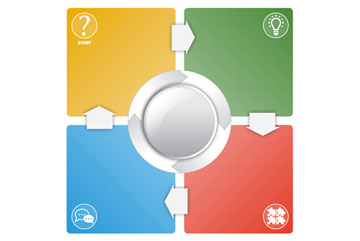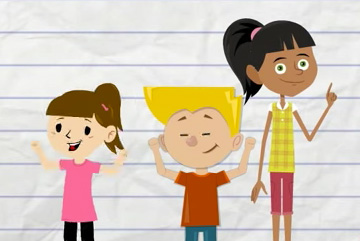Inquiry is an intellectual process used by social scientists to address authentic issues. Inquiry-based instruction gives students practice being political scientists, economists, geographers, and historians.
The inquiry process laid out in Minnesota's social studies standards asks students to inquire, think critically, solve problems, and communicate. Students can practice the skills embedded in the inquiry process on a regular basis; these skills can be combined into an inquiry project at least once during the year or course.
Engaging students in inquiry is hard work ... so why do it? The inquiry process provides opportunities for students to build on their experiences, apply their skills, and express their knowledge and ideas - these are habits of lifelong learners.
Links to Learn More

Infographics

- Blank graphic organizer
- Grades K-2
- Grades 3-6
- Civics: Color (pdf) | B&W (pdf)
- Economics: Color (pdf) | B&W (pdf)
- Geography: Color (pdf) | B&W (pdf)
- History: Color (pdf) | B&W (pdf)
- Grades 6-12
- Civics: Color (pdf) | B&W (pdf)
- Economics: Color (pdf) | B&W (pdf)
- Geography: Color (pdf) | B&W (pdf)
- History: Color (pdf) | B&W (pdf)
Videos for Students

- Disciplinary inquiry (in English):
- Civics: Guide (pdf) | Video with Transcript
- Economics: Guide (pdf) | Video with Transcript
- Geography: Guide (pdf) | Video with Transcript
- History: Guide (pdf) | Video with Transcript
- Disciplinary inquiry (in Spanish):
- Civics: Guide (pdf) | Video with Transcript
- Economics: Guide (pdf) | Video with Transcript
- Geography: Guide (pdf) | Video with Transcript
- History: Guide (pdf) | Video with Transcript
